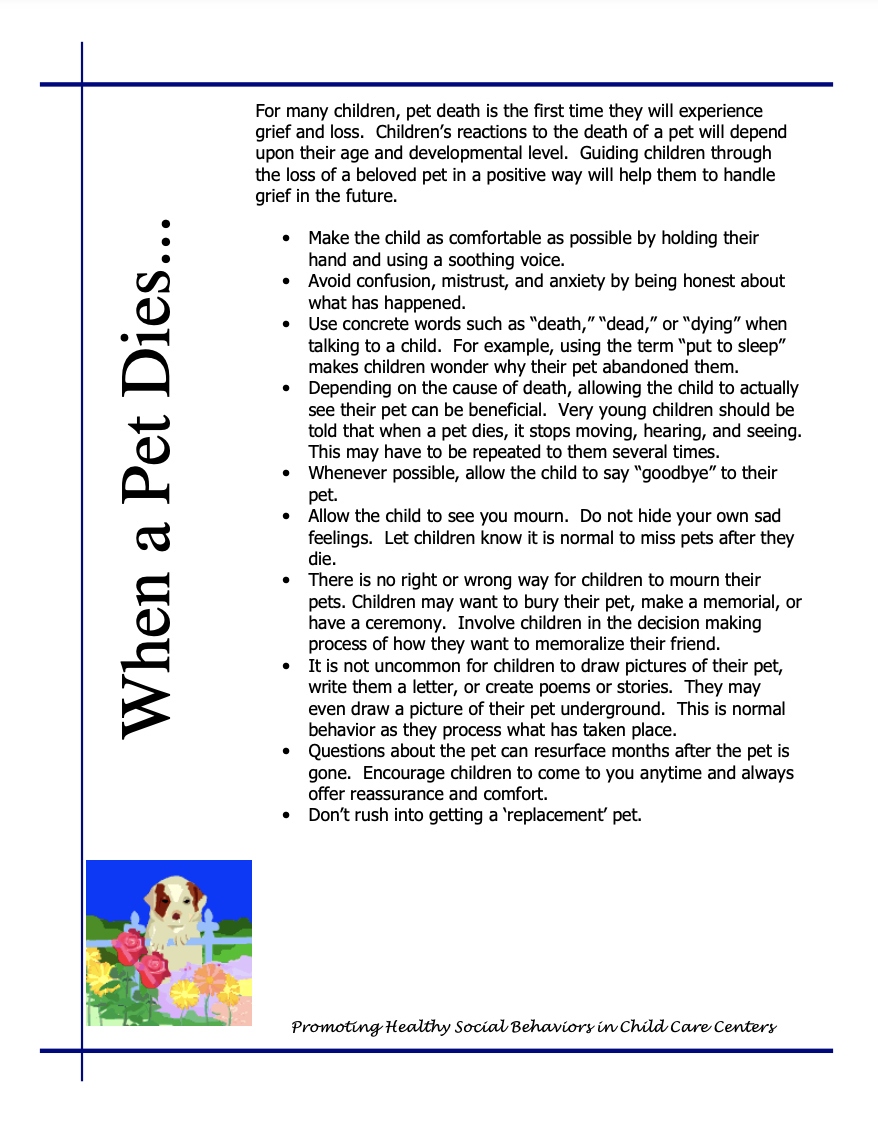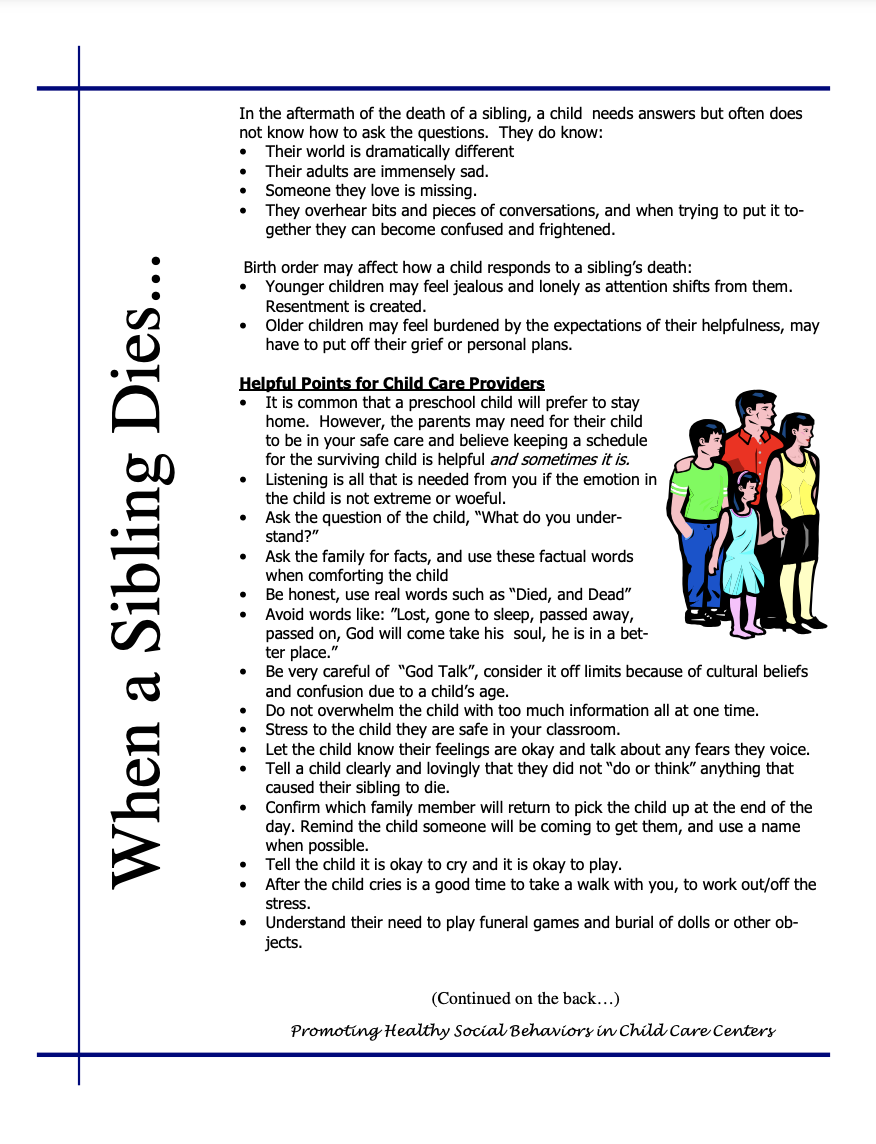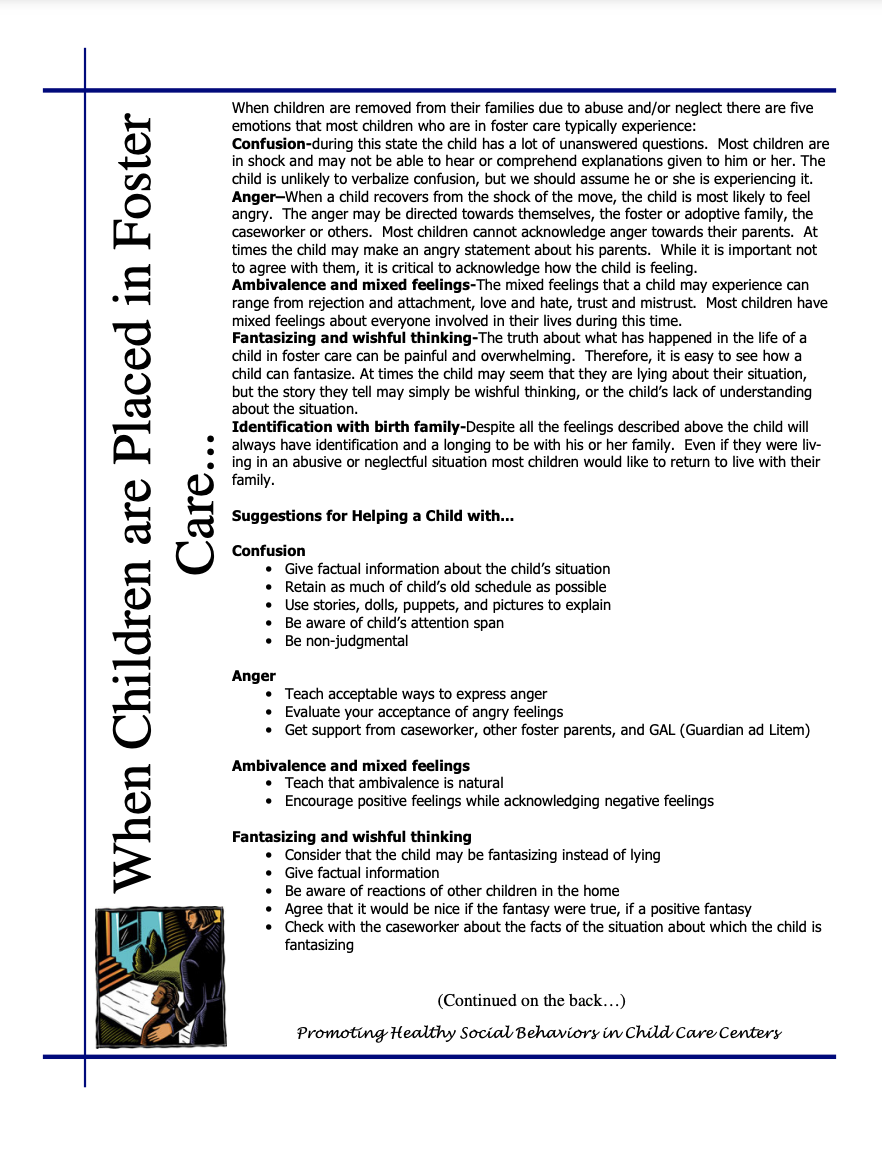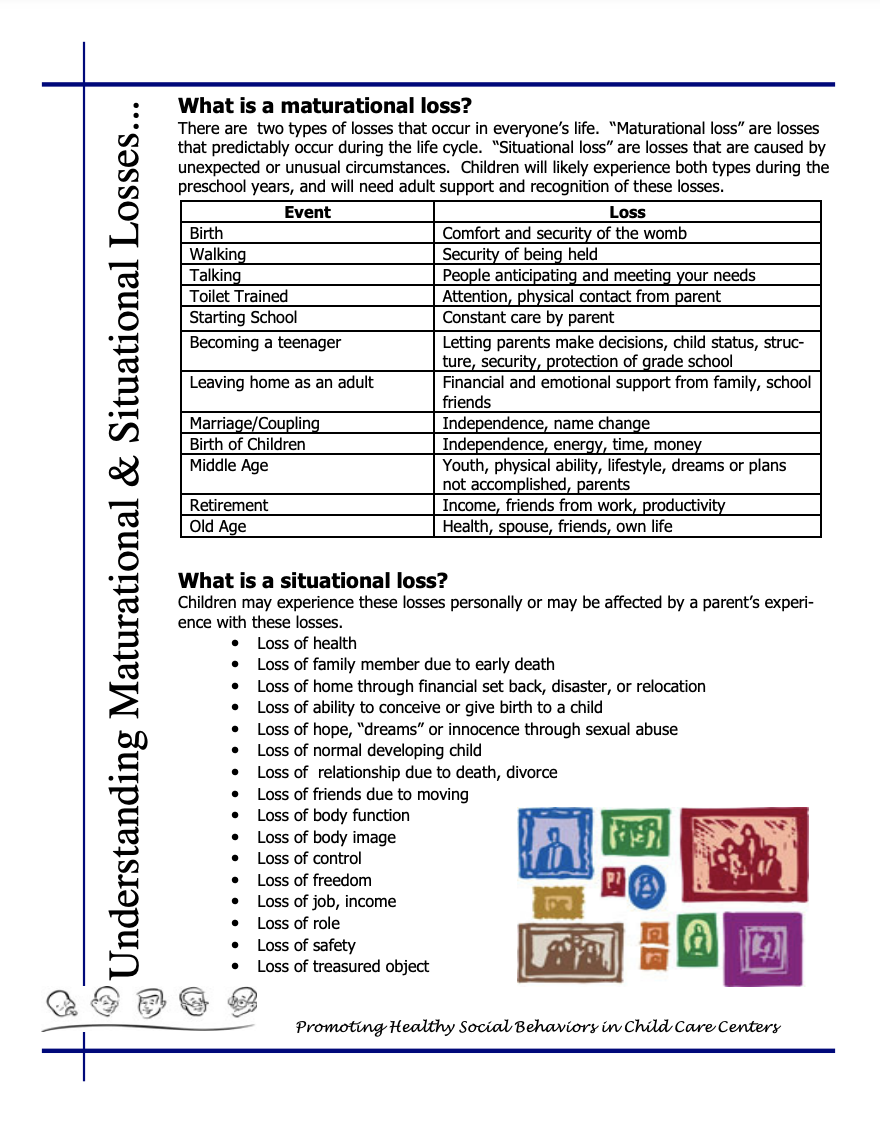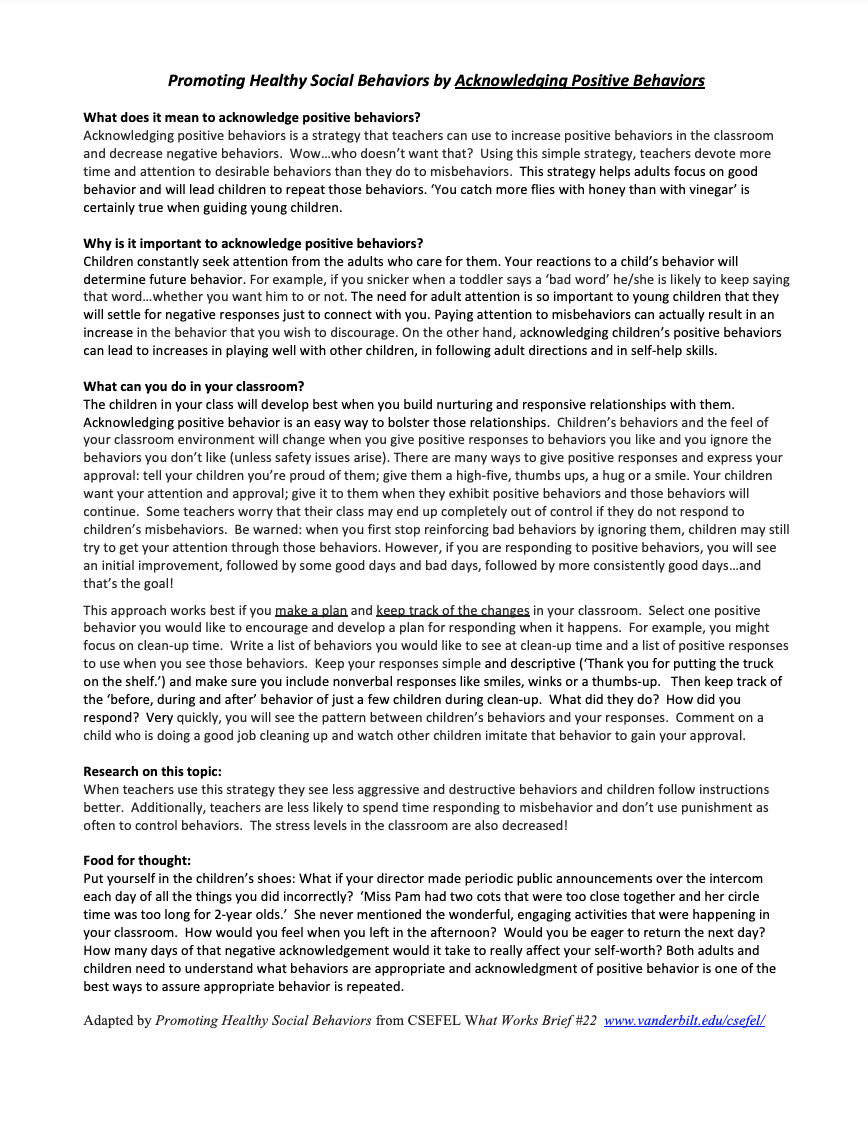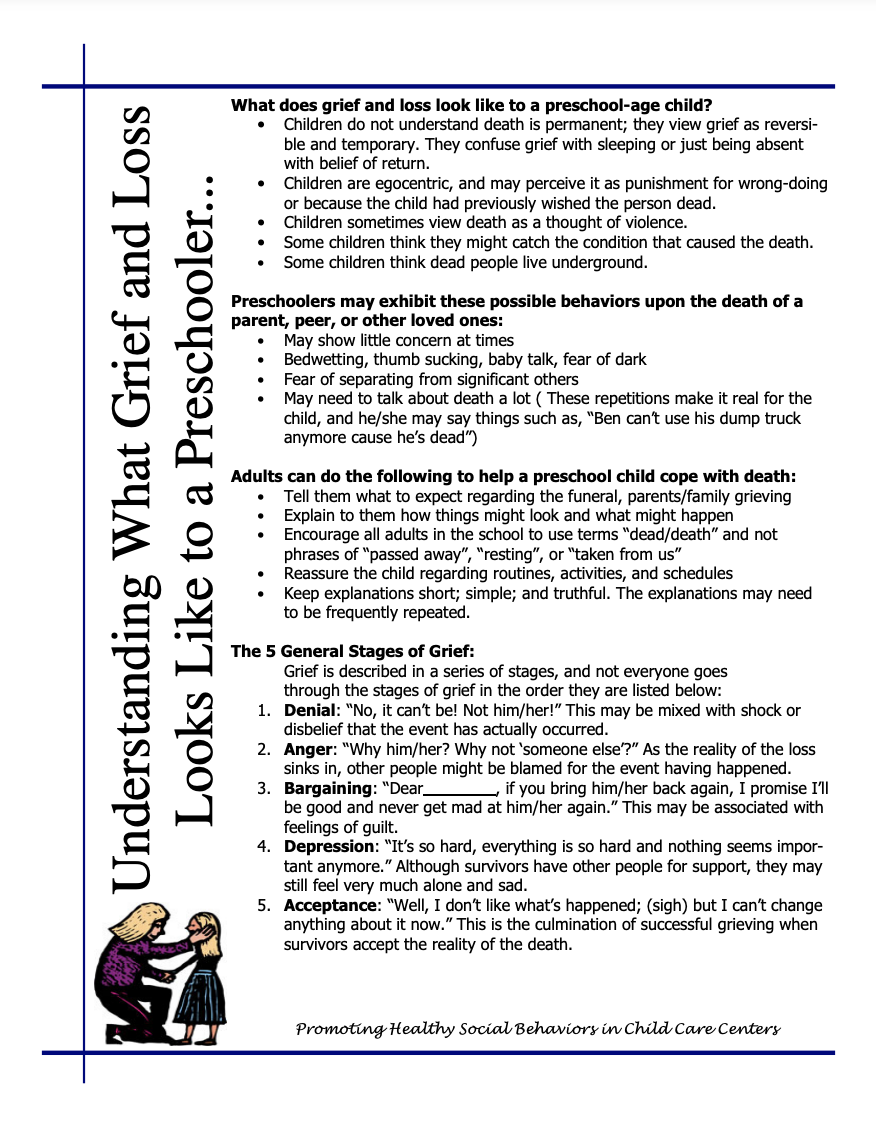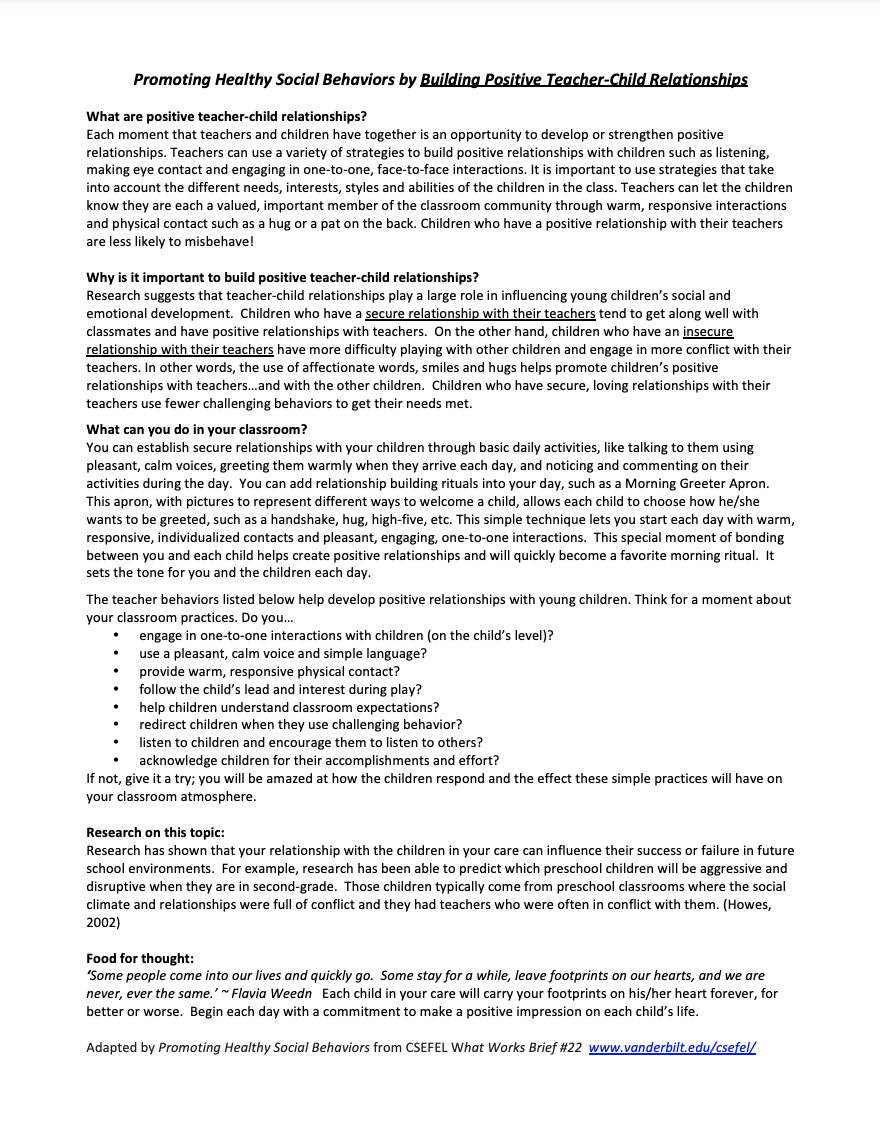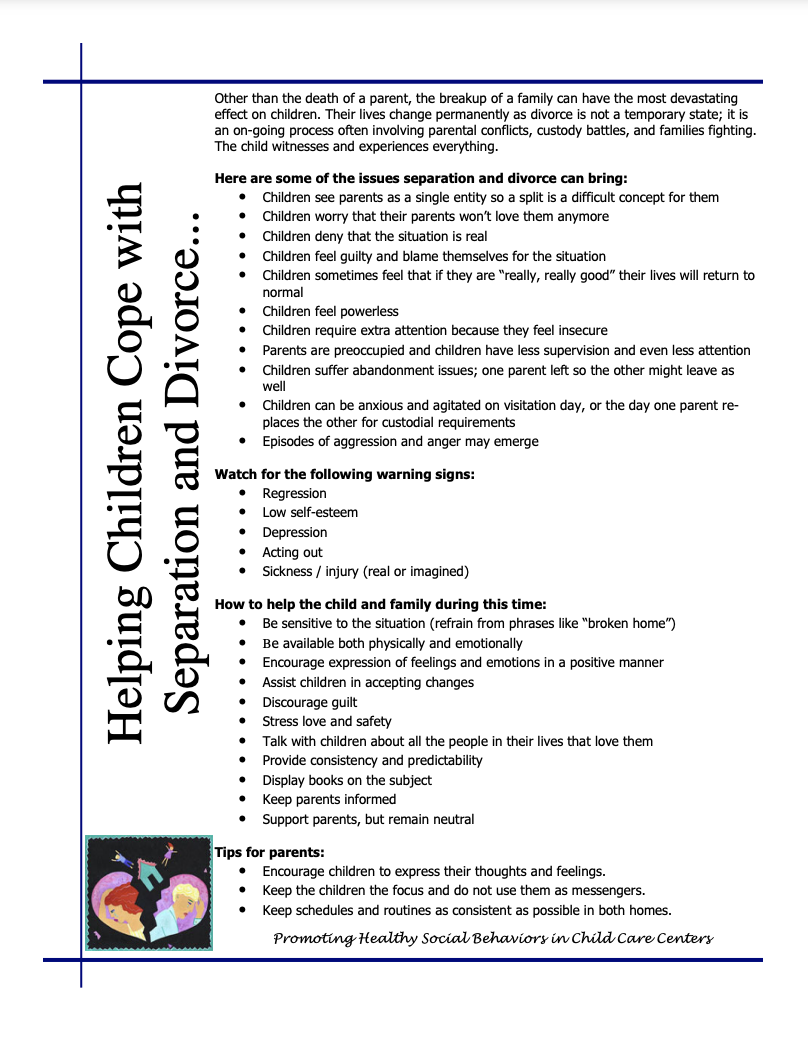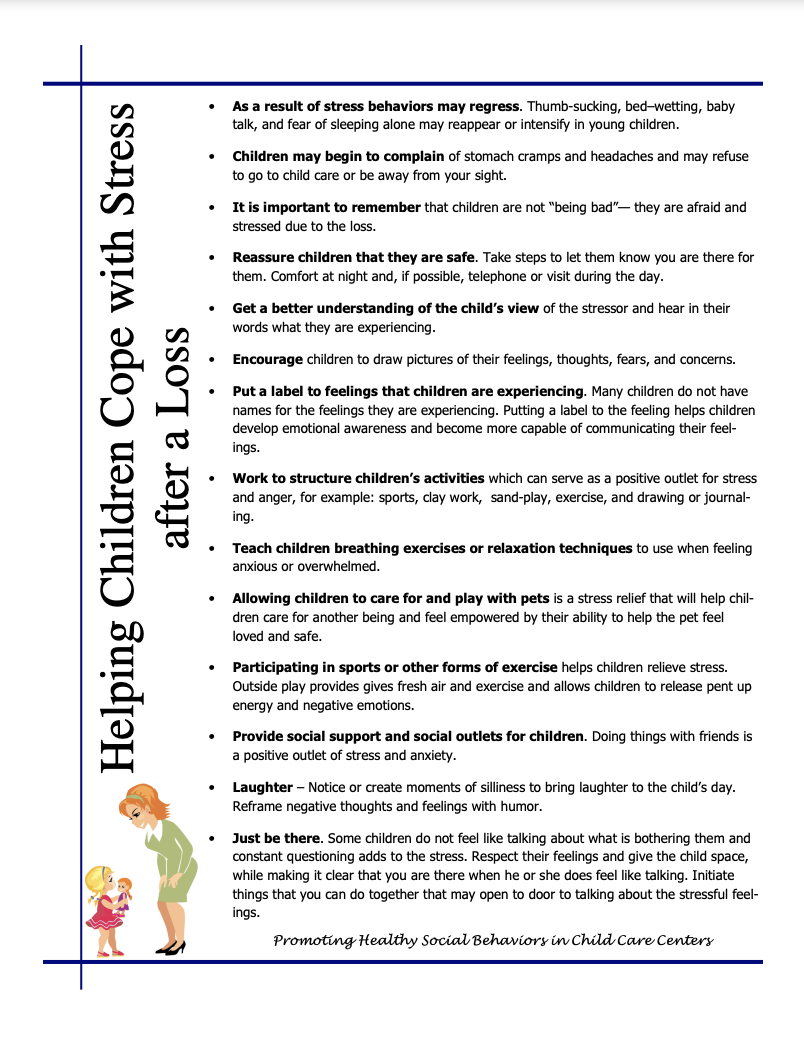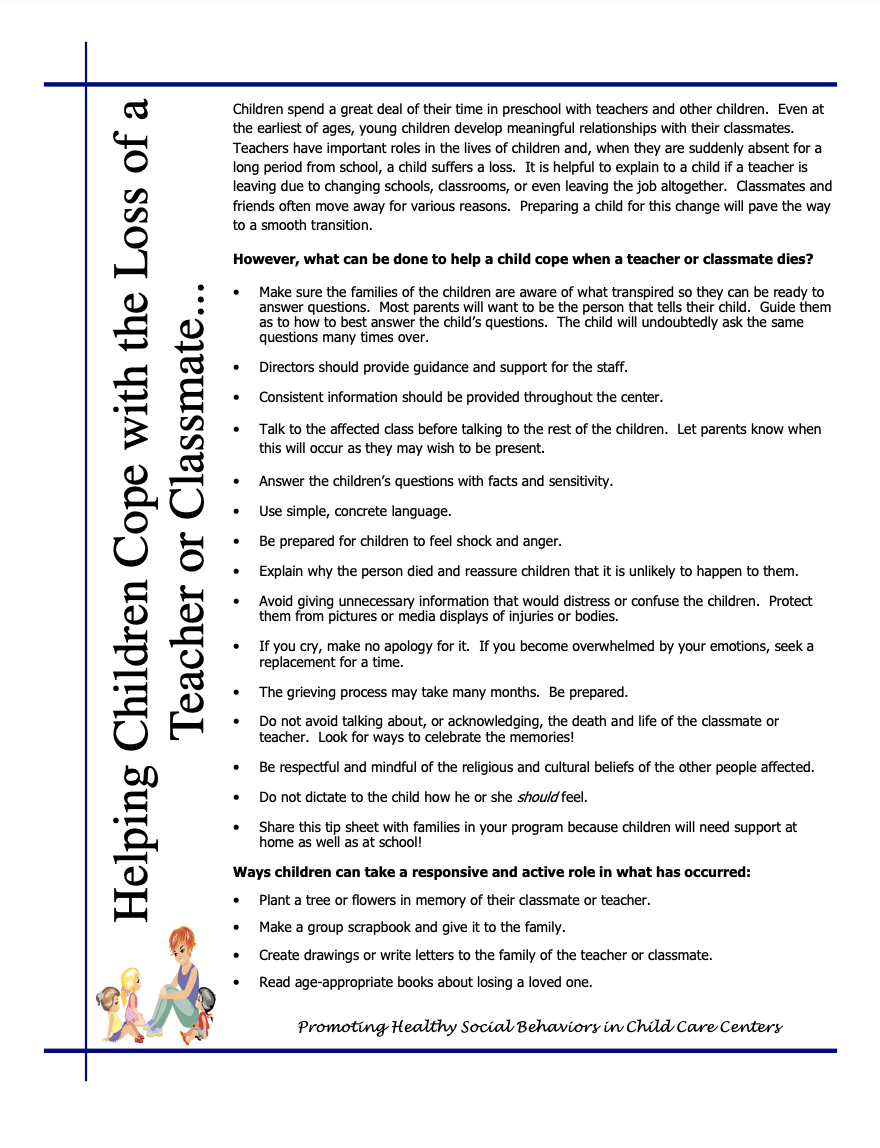For many children, pet death is the first time they will experience grief and loss. Children’s reactions to the death of a pet will depend upon their age and developmental level. Guiding children through the loss of a beloved pet in a positive way will help them to handle grief in the future.
Topic: Social-Emotional
When a Sibling Dies
In the aftermath of the death of a sibling, a child needs answers but often does not know how to ask the questions. This guide contains helpful tips for child care providers and parents.
When Children Are Placed in Foster Care
When children are removed from their families due to abuse and/or neglect, there are five emotions that most children who are in foster care typically experience: confusion, anger, ambivalence/mixed feelings, fantasizing/wishful thinking and identification with their birth family. In this guide, you’ll find suggestions suggestions for helping a child navigate these emotions.
Understanding Maturational and Situational Losses
There are two types of losses that occur in everyone’s life. “Maturational losses” predictably occur during the life cycle. “Situational losses” are caused by unexpected or unusual circumstances. Children will likely experience both types during the preschool years, and will need adult support and recognition of these losses.
Acknowledging Positive Behaviors
What does it mean to acknowledge positive behaviors? Learn why it’s important, strategies and much more in this report.
Understanding What Grief and Loss Looks Like to a Preschooler
Learn what grief and loss looks like to a preschool-age child, and what you can do to help.
Building Positive Teacher-Child Relationships
What are positive teacher-child relationships and why are they important? Find the answers to these questions and more in this report.
Helping a Child Cope With Separation and Divorce
Other than the death of a parent, the breakup of a family can have the most devastating effect on children. Their lives change permanently as divorce is not a temporary state; it is an on-going process often involving parental conflicts, custody battles, and families fighting. The child witnesses and experiences everything.
Helping a Child Cope with Stress
A variety of helpful tips for helping children cope with stress, especially after a loss.
Helping a Child Cope With the Loss of a Teacher or Classmate
Children spend a great deal of their time in preschool with teachers and other children. Even at the earliest of ages, young children develop meaningful relationships with their classmates. Teachers have important roles in the lives of children and when they are suddenly absent for a long period from school a child suffers a loss.… Continue reading Helping a Child Cope With the Loss of a Teacher or Classmate
